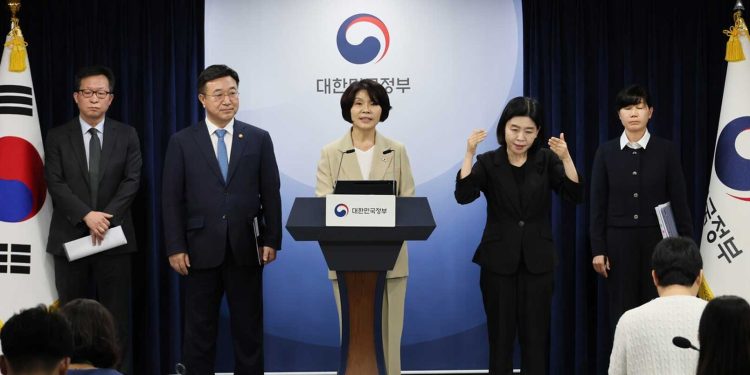South Korea has elevated its small business policy to the vice-ministerial level, signaling a turning point in how the country supports its SME base. The creation of a Vice Minister for Small Businesses under the Ministry of SMEs and Startups reflects not only domestic advocacy but also broader structural priorities in Korea’s economic strategy. For founders, investors, and policymakers worldwide, this move reshapes how Korea integrates small enterprises into its startup ecosystem and growth agenda.
Korea’s MSS Establishes Vice Minister for Small Businesses
At the third high-level party–government council on September 7, South Korea’s administration confirmed a government reorganization plan that introduces a dual–vice minister system within the Ministry of SMEs and Startups (MSS).
The new Second Vice Minister will oversee all small business affairs, including policy development, startup promotion, market access, business protection, and management stabilization.
The First Vice Minister will continue to handle broader SME and venture policies, while the newly created role ensures dedicated oversight of micro and small enterprise issues.
Policy Roots and Economic Pressures
The decision comes after years of sustained advocacy from the Korea Federation of Micro Enterprises (KFME) and other small business associations.
As early as the 19th presidential election in 2017, KFME pushed for the establishment of a ministry-level body for small businesses, which eventually led to the creation of MSS. Ahead of this year’s election, the federation submitted over 110 policy proposals, making the appointment of a Vice Minister for Small Businesses its top priority.
The move also reflects broader economic pressures. In 2024, the number of closures among small business owners and self-employed workers reportedly exceeded one million for the first time, highlighting the fragility of the sector. Policymakers and industry groups alike have argued that temporary aid measures are insufficient, and that structural policy attention is needed to restore resilience and growth.
Statements from the Small Business Leaders
KFME welcomed the announcement, describing it as evidence of the government’s intent to listen to small business voices. In an official statement, Chairman Song Chi-young said:
“The government’s decision to create a Vice Minister for Small Businesses demonstrates a strong will to listen to the voices of small business owners. Together with business owners nationwide, we warmly welcome this decision and express deep gratitude.”
He emphasized that the new role must be filled by someone with both policy expertise and on-the-ground experience:
“We hope the Vice Minister will be an expert with a high level of understanding of small business policy and rich field experience, capable of driving policy transformation and creating a breakthrough in an unprecedented crisis.”
Other industry voices echoed the sentiment. Jeong Dong-gwan, head of the Korea Food Service Industry Association’s Gyeonggi Southern Branch, noted:
“Until now, communication channels for small business support were fragmented. A Vice Minister provides the sector with a real spokesperson.”
Vice Minister for Small Businesses: The Role’s Significance for Korea
The appointment of a Vice Minister for Small Businesses goes beyond administrative reshuffling. It marks a structural shift in Korea’s SME and startup policy architecture, with several implications:
- Institutionalized Policy Attention: Small businesses, which form the backbone of Korea’s economy, now gain a formal voice at the vice-ministerial level, ensuring continuity beyond temporary support measures.
- Startup Ecosystem Linkage: Many startups emerge from micro-enterprises. Policies targeting resilience and growth at the small business level can feed directly into Korea’s broader startup and venture pipeline.
- Global Relevance: For foreign founders and investors, the move signals Korea’s intent to create a more stable, supportive environment for SMEs, complementing initiatives like the Startup Korea Visa and TIPS program.
- Regional Economy Vitalization: KFME has argued that policy must evolve from individual support to organized collaboration across markets, shopping districts, and local ecosystems. This reflects a model where small business vitality contributes to regional competitiveness and global market entry readiness.
Stronger Foundation for Korea’s SMEs Economic and Innovation Policy Framework
By elevating small business affairs to a vice-ministerial position, South Korea has institutionalized a stronger foundation for SMEs within its economic and innovation policy framework. For global investors and founders, this is a signal that the Korean government is reinforcing the lower rungs of its growth ladder, aiming to stabilize local enterprises while enabling more sustainable entry points into the startup and venture ecosystem.
As the government finalizes organizational details, the effectiveness of this reform will depend on leadership selection and execution. For now, Korea’s small business community sees the move as a breakthrough — and global stakeholders should watch closely how this structural shift aligns with the country’s broader ambition to become a leading hub for startup growth and cross-border investment.
– Stay Ahead in Korea’s Startup Scene –
Get real-time insights, funding updates, and policy shifts shaping Korea’s innovation ecosystem.
➡️ Follow KoreaTechDesk on LinkedIn, X (Twitter), Threads, Bluesky, Telegram, Facebook, and WhatsApp Channel.






